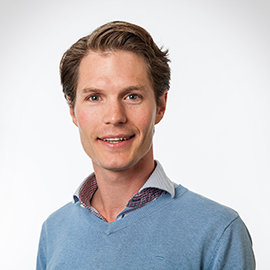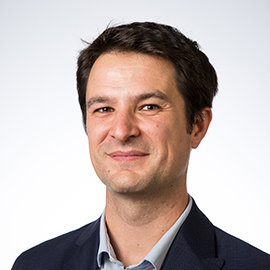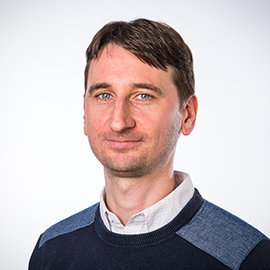Three Vidi’s for faculty 3mE
The Dutch Research Council has awarded 101 experienced researchers a Vidi grant worth 800,000 euros. Eight Vidis go to top researchers from Delft, of which no fewer than three researchers work at the 3mE faculty: Michael Wiertlewski, Willem Haverkort and Kim Batselier. The grant enables them to develop their own innovative line of research and set up their own research group in the coming five years.
Hydrogen Bubbles Quantified
Dr. ir. Willem Haverkort
Green hydrogen can be produced through electrolysis of water. The efficiency of this process can be improved by better understanding and influencing the behaviour of bubbles generated at the electrodes. A unique new physical model describing the complex interaction between electrodes, bubbles, and flows will provide the necessary insight. After experimental validation, it will be used to design improved electrodes and the next generation of innovative, efficient, safe, and highly compact electrolysers.
- Universiteit van Nederland: Kan je een auto laten rijden op water? (Dutch)
- J.W. (Willem) Haverkort | Assistant Professor in the field of electrochemical engineering
Robots with a gentle touch
Dr. Michaël Wiertlewski
Robots have improved working conditions by handling dirty, dangerous, or dull tasks present in many industry sectors; however tiring manual labor is still necessary in sectors such as agriculture, recycling or care, where a soft touch is required to grasp and handle delicate objects. To be skillful, robots need to perceive the texture, shape and softness of the object in hand and to detect when it can potentially slip, via their sense of touch. Using machine learning and new tactile sensors, I will endow new dexterous robots with the sense of touch inspired by the remarkable human tactile perception.
Sustainable learning of Artificial Intelligence from large-scale noisy data
Dr. Kim Batselier
Computer models play an essential role in modern society. Learning models from data is not sustainable due to the ever-growing requirement of computational power. I will develop ground breaking methods that will learning model from data much faster and with a much smaller carbon footprint than currently needed.



